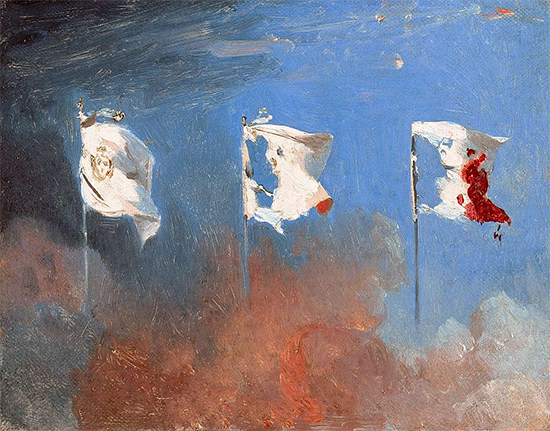The Greek Revolution and European Republicanism, 1815-1830
The aim of the project is to understand the role of republicanism in the making of the modern nation state and ideas of constitutionalism. We hope to show how international networks of republicans across Europe disseminated ideas and were engaged in and discussed political developments across borders. Particularly, we investigate what role the Greek Revolution of 1821-9 played and hope to show that it was of absolute central importance.

It is our hypothesis that the Greek Revolution reinvigorated republicanism as a political force and that it spurred the movements that led European states to constitutionalism, democracy, and parliamentarism, beginning with the French constitution following the July 1830 Revolution in its capacity as the first successful national revolution after the demise of Napoleon’s Empire.
We will test this hypothesis by (1) identifying persons and networks through which republican ideas of government and citizenship travelled between Greece and the rest of Europe, especially France; (2) analysing the specific content of these ideas among Greeks before and during the revolution; and (3) analysing the roles that the Greek Revolution and Greek republican ideas played in the reconfiguration of republicanism in France and what impact they had on the constitution of France.
What happened to republicanism after the French Revolution, and in particular in the period 1815-1830?
What role did republicanism play in the Greek Revolution?
What role did the Greek Revolution play in the development of republican ideas across Europe, particularly in France?
What were the networks through which such ideas travelled?
What were the effects of these ideas on ideas of ‘constitution’, ‘nation’, and ‘citizenship’ in the period?
Research on the history of republicanism tends to fall within two camps, one focusing on republican thought in the early modern period beginning with the Italian Renaissance and ending at the time of Rousseau and Mably in mid-18th century, while a second camp studies modern republicanism and take their starting point from the time of the French July Revolution of 1830. Research on the political ideas of the Greek revolutionaries tends to focus on inspiration from Europe and not analyse how ideas developed by Greek revolutionaries were received in the rest of Europe.
The aim of this project is to establish that the Greek Revolution was an integral part of a European-wide development of republican ideas and movements. We will do so by focusing on ideologues and their networks: that is, Greek activists who drafted constitutions, published their thoughts, and exchanged letters with a large number of people across Europe as well as journalists, politicians and diplomats across Europe. These were cosmopolitan merchants, members of secret societies, writers, publishers, and intellectuals, all deeply embedded in European networks exchanging among other things Enlightenment ideas and subversive political ideals.
The project consists of two sub projects, each consisting of a series of case studies.
One sub project focuses on the Greek Revolution and analyses the debates and ideas of Greek revolutionaries as well as the networks through which such ideas travelled.
A second sub project analyses the reception of the Greek Revolution particularly in France and the networks through which these travelled.
A conference on “19th Century Republicanism on a Global Scale” will take place in 2023.
Funding
Project period: 2021- 2026
PI: Mogens Pelt
Researchers
| Name | Title | Phone | |
|---|---|---|---|
| Pelt, Mogens | Associate Professor | +4551299521 |

